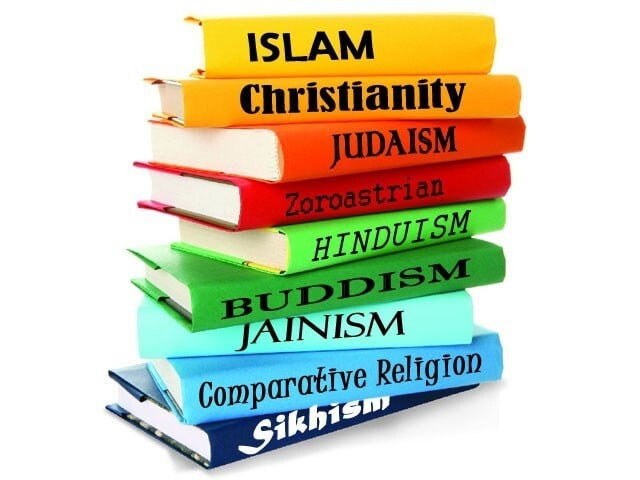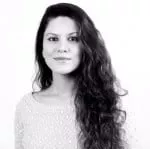It’s not often that I get the chance to applaud something positive happening in this country, so I get immensely excited when that moment finally arrives. Though the positives are always less in number, it is only fair to talk about them with full force.
After the massive debate on the Single National Curriculum (SNC) and the uncertainty towards whether this new system of education would do justice to students and schools across all spectrums in the country, Sindh, in October 2022, took an imperative step towards ensuring a more inclusive version of the same. For the first time in history, Sindh will now incorporate seven religious education courses within its newly termed “National Curriculum of Pakistan” (NCP) instead of the SNC. The National Book Foundation (NBF) is to publish textbooks on Hinduism, Sikhism, Christianity, Bahai, Zoroastrianism, Kalasha and Buddhism.
The theoretical aspect of this development seems a rather inviting one indeed. Federal Minister of Education Rana Tanveer Hussain, in collaboration with Sindh Minister for Education Syed Sardar Ali Shah, has realised the importance of acknowledging the right of children belonging to different faiths to learn about their respective religions and of their fellow classmates. In my opinion, there hasn’t been a more sensitive decision made especially when it comes to incorporating essential educational content in schools for the minority groups, who exist and deserve equal respect and representation, but sadly are the ones who are constantly targeted and not given their due rights.
Considering other bleak updates coming from Sindh, including the recent floods, this news, which essentially honours one part of the 18th Amendment of the Pakistani Constitution, is a great addition to Sindh’s educational system. The 18th Amendment constitutes the,
“Recognition of the children's right to education and insertion of a new section under Article 25A to provide constitutional guarantee that state will provide free and compulsory education to all girls and boys up to age 16.”
Sindh is home to a variety of communities belonging to different religions and it’s about time they are officially acknowledged in various sections and strata of society. Introducing their history and essential learnings at educational institutions is a great way to start a cycle of acceptance. Furthermore, there are plentiful benefits of implementing inclusive education. Inclusive systems not only make way for better quality education for all children, but also contribute in shifting discriminatory attitudes. Which is why schools are a great place to start as they provide the foundation on which a child’s first relationship with the world, outside of their homes and families, is formed, further developing their social relationships and exchanges.
According to The Value of Inclusive Education,
“Respect and understanding grow when students of diverse abilities and backgrounds play, socialise and learn together. Education that excludes and segregates perpetuates discrimination against traditionally marginalised groups. When education is more inclusive, so are concepts of civic participation, employment and community life.”
Considering the fact that schools are a sacred place which hold the responsibility of shaping young minds and societies is enough to know that as a country we have not been successful in upholding that responsibility. In fact, it’s quite the opposite – the “us versus them” narrative taught in textbooks and schools has always given rise to further discrimination and hatred towards people of other faiths. Unlike education systems around the globe where schools play an integral part in raising sensitive and aware children, Pakistani schools have widened that gap and have, in actuality, created an environment of hostility. The textbook writers as well as teachers, some with their far-right biases, have for a long time only allowed a certain discriminative type of narrative to be learned. This progressive element has been missing from our educational content for far too long and it is time to try and change that.
Despite this favourable move, however, whether these steps will translate into a bigger social transformation is still something we have to wait to see. The high level of religious intolerance and violent extremism has destroyed the entire fabric of the society and political opportunists continue to use these elements to maintain their power over the masses. The failure to bring everyone together in unison for the progression of society has cost us our reputation in the global market. It has also unfortunately cost a lot of people their lives just for merely existing in a country like Pakistan as non-Muslims. Available space for minority groups to enjoy their basic human rights has only shrunk over time.
Unlearning deep-rooted ideologies of hatred and unmasking the political agendas behind the several hurtful systems in place is what is going to take to reverse the current situation. Sadly though, it is never that simple and especially not for a country like ours that is buried under layers of complexities, including economical and financial hardships, not to mention the complete lack of a national identity as citizens.
What we can hope for is that there are no complications and comprises in the implementation phase of the NCP and that the conservative religious resistance doesn’t obstruct the potential impact of launching an inclusive educational system in Sindh and perhaps eventually making this an example to be followed by other provinces.



COMMENTS
Comments are moderated and generally will be posted if they are on-topic and not abusive.
For more information, please see our Comments FAQ